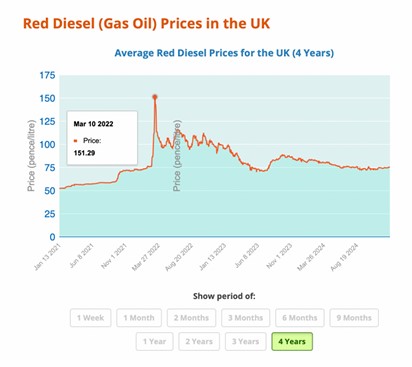Disclaimer: The below article is part of our ‘Discussion Articles’ collection of publications designed to facilitate public discussion. The views of the author do not necessarily represent the views or policies of the Reform UK Party.

Lower taxes stimulate higher growth. That principle is often cited as one of the cornerstones of conservatism. Getting the state off people’s back is essential to good economic times. This is more than just political principle, it is basic economic sense. Don’t believe me? Just look at how businesses will react when Labour’s planned changes to National Insurance come in to play. Just look at how the rich and famous upped-sticks for places like Australia, taking their income and contributions with them, during the reign of the high-taxation 1970’s Labour government.
Sadly, Britain is not limited to only having one major party which holds a favourable view to higher taxes. The reason so many voters turned their backs on the Conservative Party at the last General Election (and have continued to do so since) is because the Conservatives do not adhere to conservative principles. Case in point; the Finance Act 2021. This Act, introduced under then Chancellor Rishi Sunak, restricted the entitlements for those who are qualified to use red diesel.
For the uninitiated, red diesel is used by certain industries instead of white diesel (the kind you would use to fill your car at a fuel station, provided you don’t drive a petrol). It is no different from white diesel, other than being marked with a red dye to prevent illegal use. It has historically been used by builders in diggers, farmers in tractors, the leisure sector in generators, etc. It generally makes life easier by keeping overheads down.
One can already hear the cries, from people somewhere to the far left of me, asking why builders and farmers (amongst others) deserve a discount that others don’t get. It’s not a case of deserve. Red diesel keeps overheads down, therefore keeping down the cost to the consumer. We’ve all met the lamebrain in the pub who would brazenly state “it’s about time they started paying their way” – this attitude is the politics of envy and manifests itself all too often in today’s discourse.
Industries and applications now banned by the Finance Act 2021 from using red diesel include:
- Construction
- Leisure
- Mining and quarrying
- Oil and gas extraction
- Commercial heating
- Airport operations
- Waste management
- Ports
- Manufacturing
In September 2021, a survey by the Civil Engineering Contractors Association warned that the changes would cost SME’s somewhere between £250,000 and £600,000, with half of those concerned even worried about their ability to continue trading. All these understandable concerns appear to have landed upon deaf ears. One could be forgiven for thinking the Conservatives seriously wanted to lose power forever.
As a great relief to farmers, agriculture was amongst the industries exempt from the ban. However, as I’m sure anybody who understands economies of scale will tell you, a reduction in output is likely to have a knock-on effect. Little wonder that farmers are now paying 50% more for red diesel than they were this time four years ago!
None of this is to even mention the fact that from March 2021 to March 2022, the cost per litre of red diesel rocketed from an average of 55.82ppl to 151.29ppl. Presumably, this spike had a lot to do with a rush for the blacklisted industries to get what they could before time ran out.
So why exactly, I hear you ask, was this absurd ban enacted? You know why. Come on… you know it! Why is anything like this ever enacted in this day and age? As stated in the Government’s own policy objective, this is all in the name of the UK reaching Net Zero by 2050.
Ironically (and seemingly surprisingly to those who dreamt-up this ban), the now-blacklisted industries including construction and leisure still have to go about their daily business. Nobody burns diesel, red or white, unnecessarily. It isn’t done for the funnies! Anybody in construction now simply has to use road-intended, high-duty white diesel in their machinery. The only effect this has had is to increase overheads on businesses up and down the country. Please tell me how this reduces emissions, other than by putting hard-working people out of business.
Once again, the knock-on will inevitably mean that businesses must compensate for this one way or another. In some cases, it may mean redundancies have to be made. In others, it will mean increased cost to the end-user of a business; the customer.
If the changes were genuinely about climate change, then why is it that the tax rebate which previously applied to Hydrogenated Vegetable Oil (a lower-carbon alternative fuel) was removed in April 2022? A cynic would say that the changes really stemmed from a belief within government that the people are a bottomless money pit, that we can tax our way out of economic hardship and that nobody will kick-up a fuss because the changes have been sold to us as beneficial for our health. Some would also say that a cynic is merely a name used by an optimist to describe a realist.
This sorry saga is just one tentacle of the colossal, business-eating Net Zero monster. It is also a consequence of having a political class constructed from individuals who do not live in the real world. Some say that experience does not equal knowledge. I would argue a lack. Of experience certainly does not equal knowledge. It’s high time we had politicians who actually worked in business and know how it works.
When did we, the people, give the government the all-clear to thrust these changes upon us? All I do know is that this would never have happened had the decision been down to Reform UK. Thank goodness we now have a party like Reform UK which is prepared to say “NO” to the Labour and Conservative Net Zero consensus – a consensus upon which the people of this country were never consulted. Nobody wants to live in an unclean world. There are, however, better ways of looking after the planet than simply hounding good, honest citizens to beggary with over-zealous measures such as higher taxes, red diesel bans and there are certainly better way than tearing a scar upon our landscape with solar farms. Why not plant trees? Why not produce our own power, rather than importing fuels from countries with low environmental standards?
By introducing these measures in the Finance Act 2021, as well as many other Net Zero-related measures littered throughout British law, the Conservative government completely proved it does not hold the low-tax, small-state values it purports to hold. Thankfully, they have been hauled out of office… though only to be replaced by yet another government which is every bit as committed to feeding the soulless beast that is Net Zero on a daily diet of British business. Every silver lining has a cloud, I suppose.
It is my belief that the ban should be completely overturned. The Conservatives don’t hold conservative principles. Labour aren’t interested in the working man. I know who my money’s on. Free the people. Get the state off people’s backs!
2 Comments
Leave A Comment
You must be logged in to post a comment.






Well done Joe! A well argumented article in which you made some convincing points.
Just goes to show how this Net Zero lunacy has been to UK businesses.
Excellent article